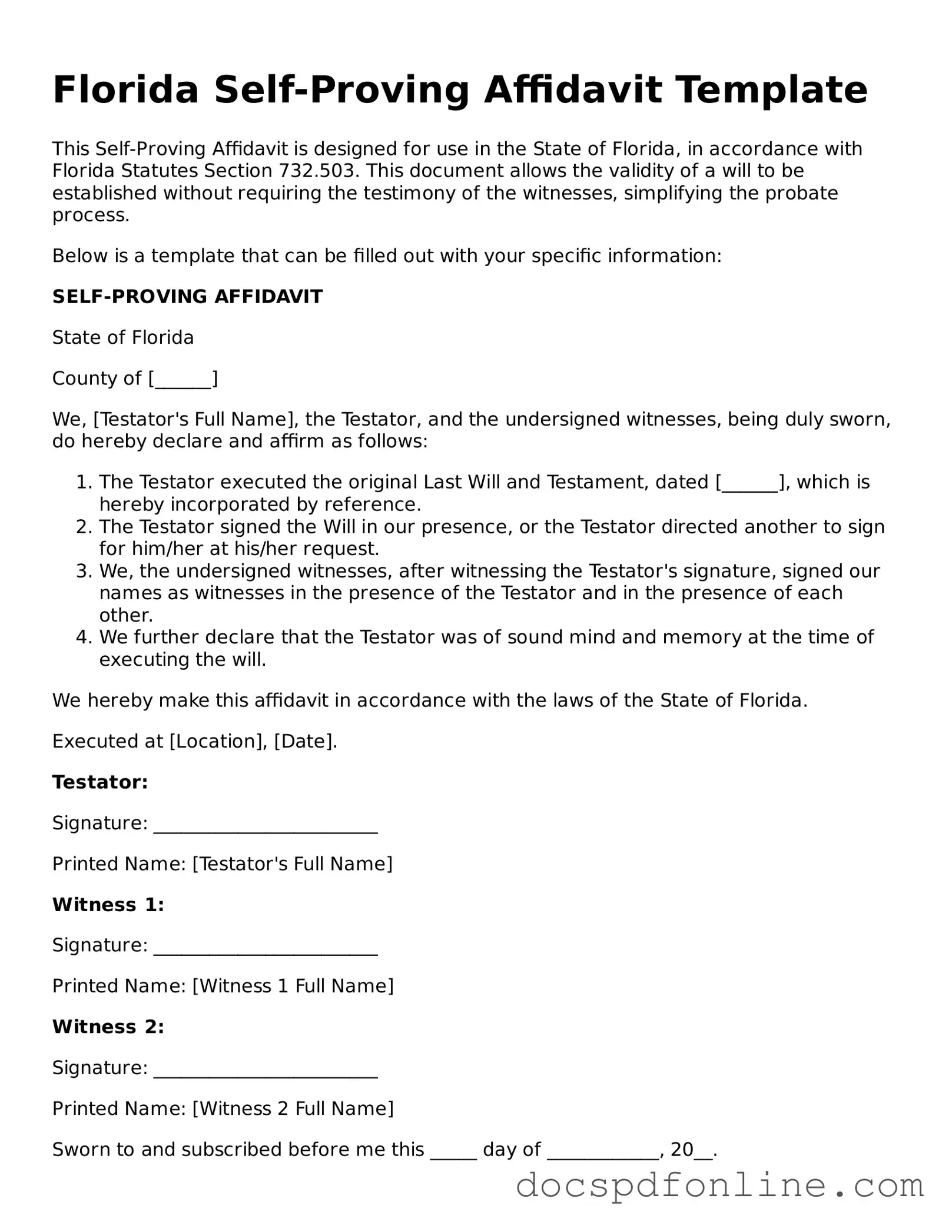Legal Self-Proving Affidavit Template for Florida
The Florida Self-Proving Affidavit is a legal document that allows a testator's will to be validated without the need for witnesses to testify in court. This form simplifies the probate process by providing a sworn statement from the testator and witnesses, confirming the will's authenticity. By using this affidavit, individuals can help ensure their final wishes are honored efficiently and effectively.
Launch Editor Now

Legal Self-Proving Affidavit Template for Florida
Launch Editor Now
Save time — finish this form fast
Finish Self-Proving Affidavit online — edit, save, download made easy.
Launch Editor Now
or
↓ PDF File
